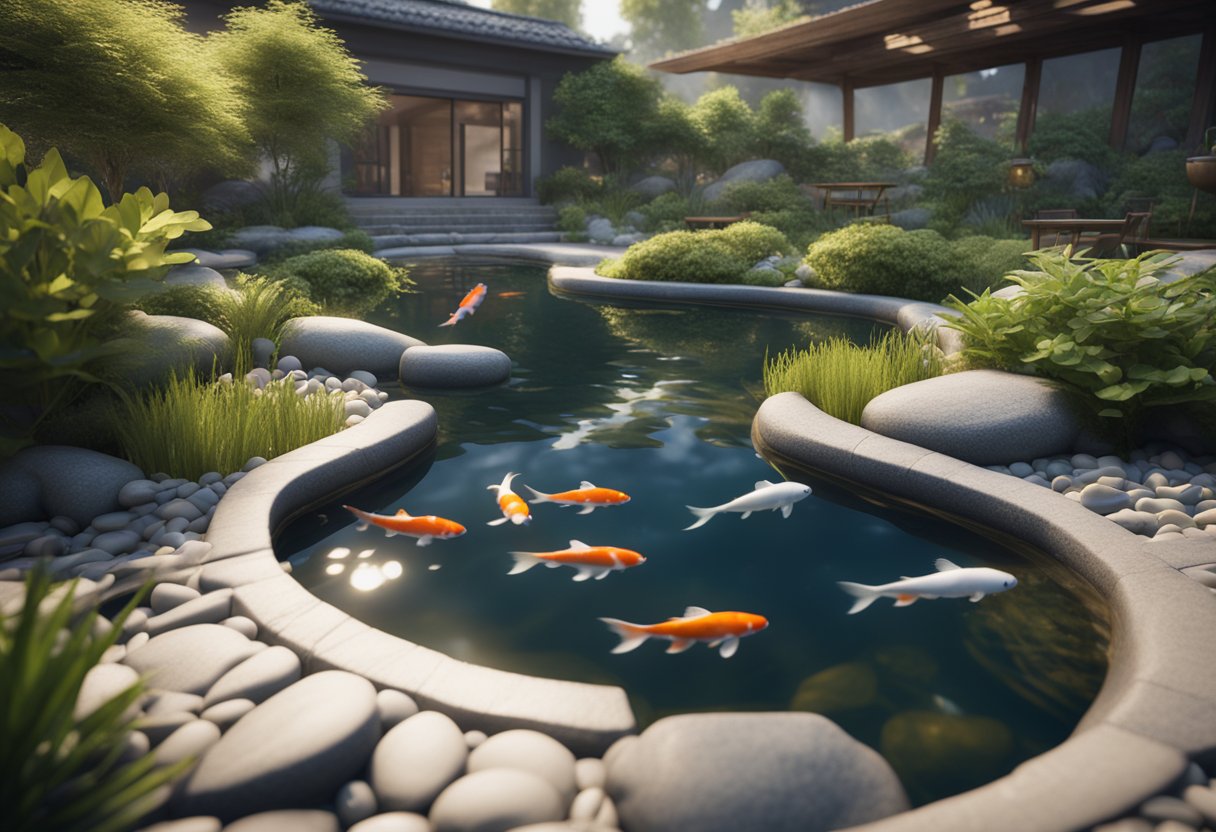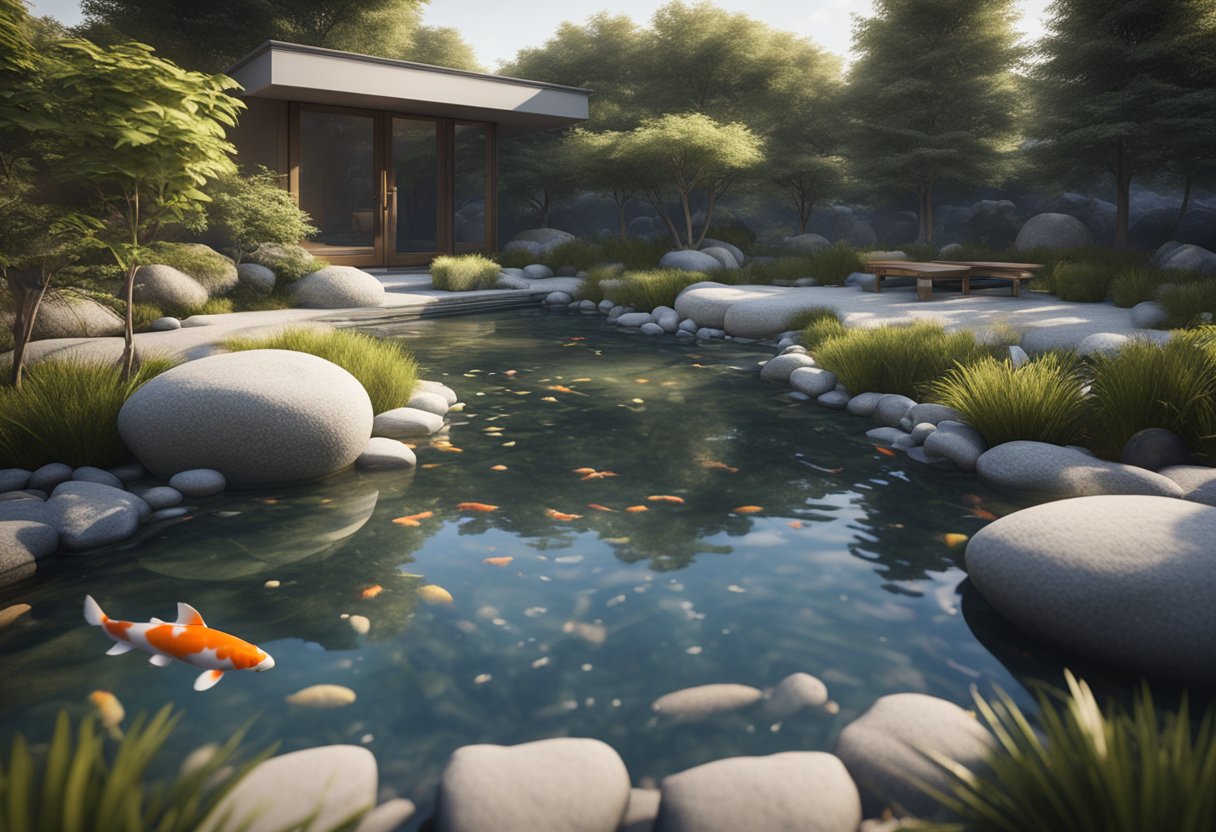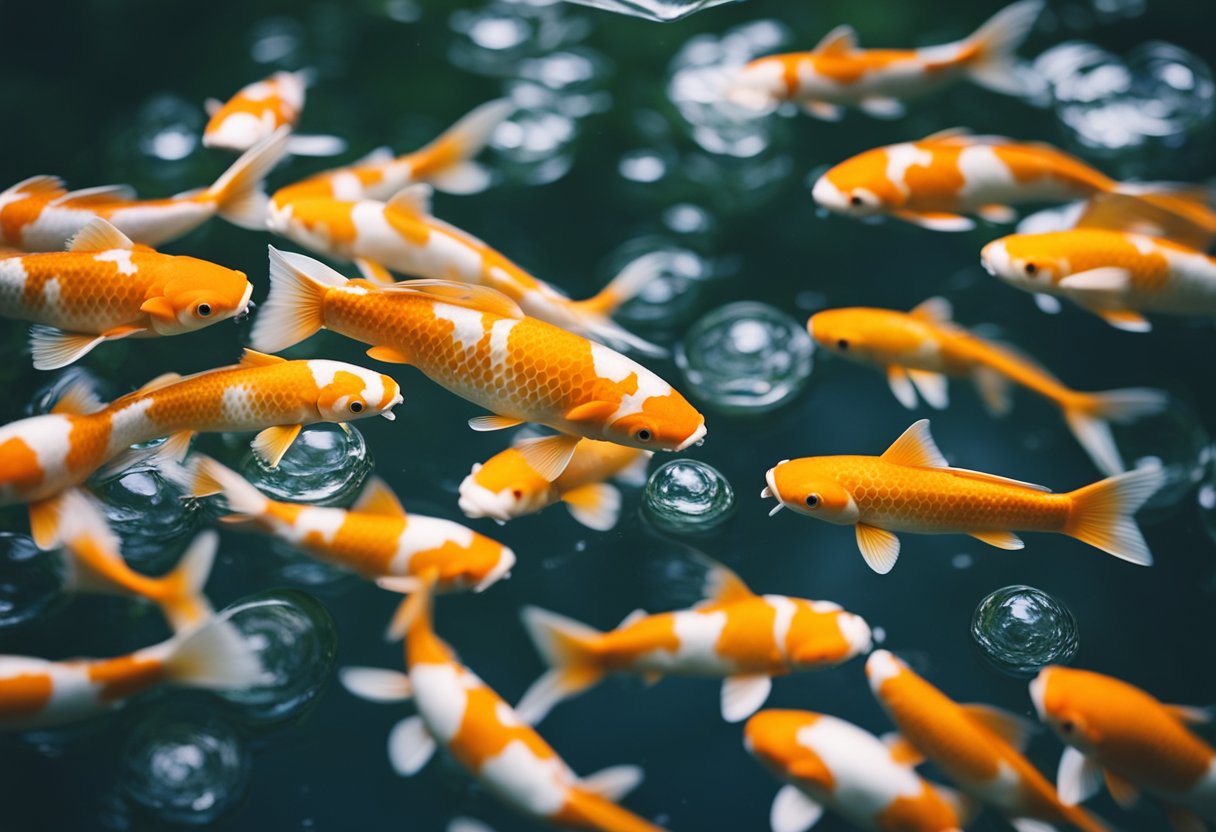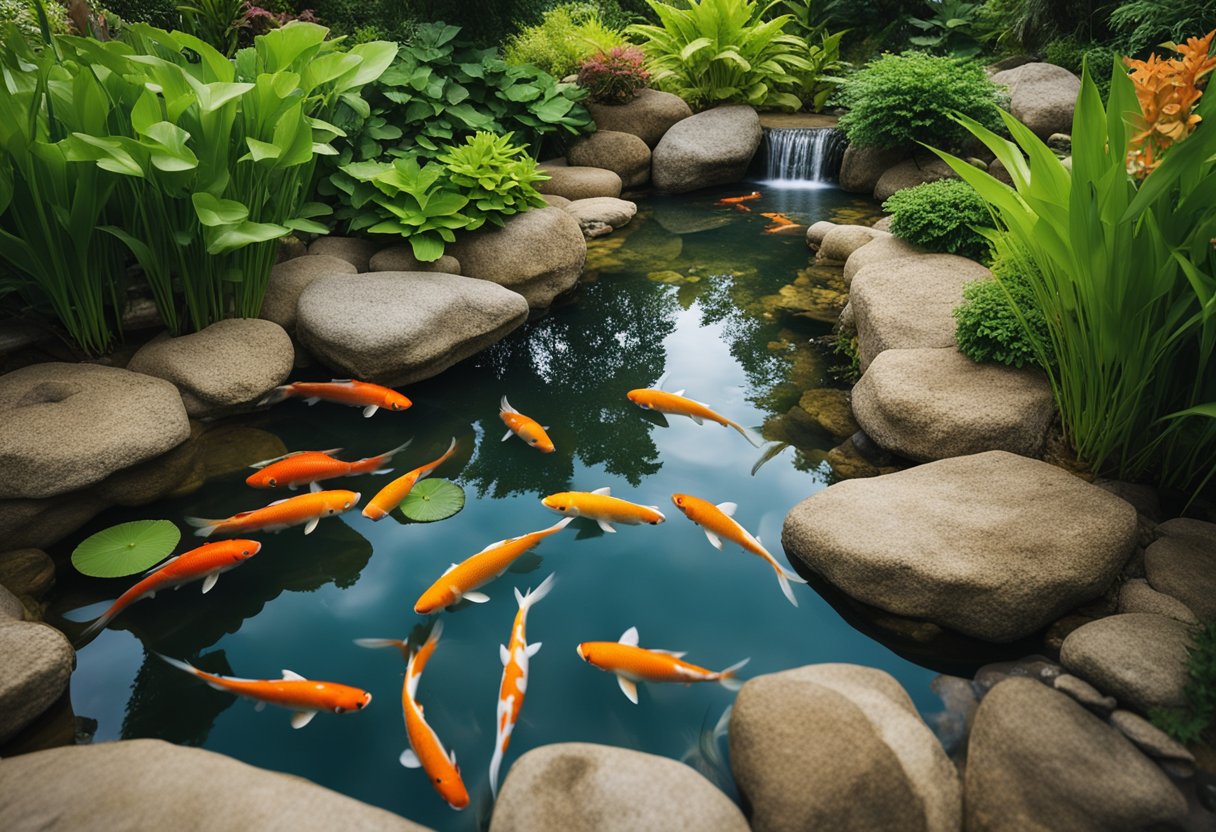Koi pond filtration system selection
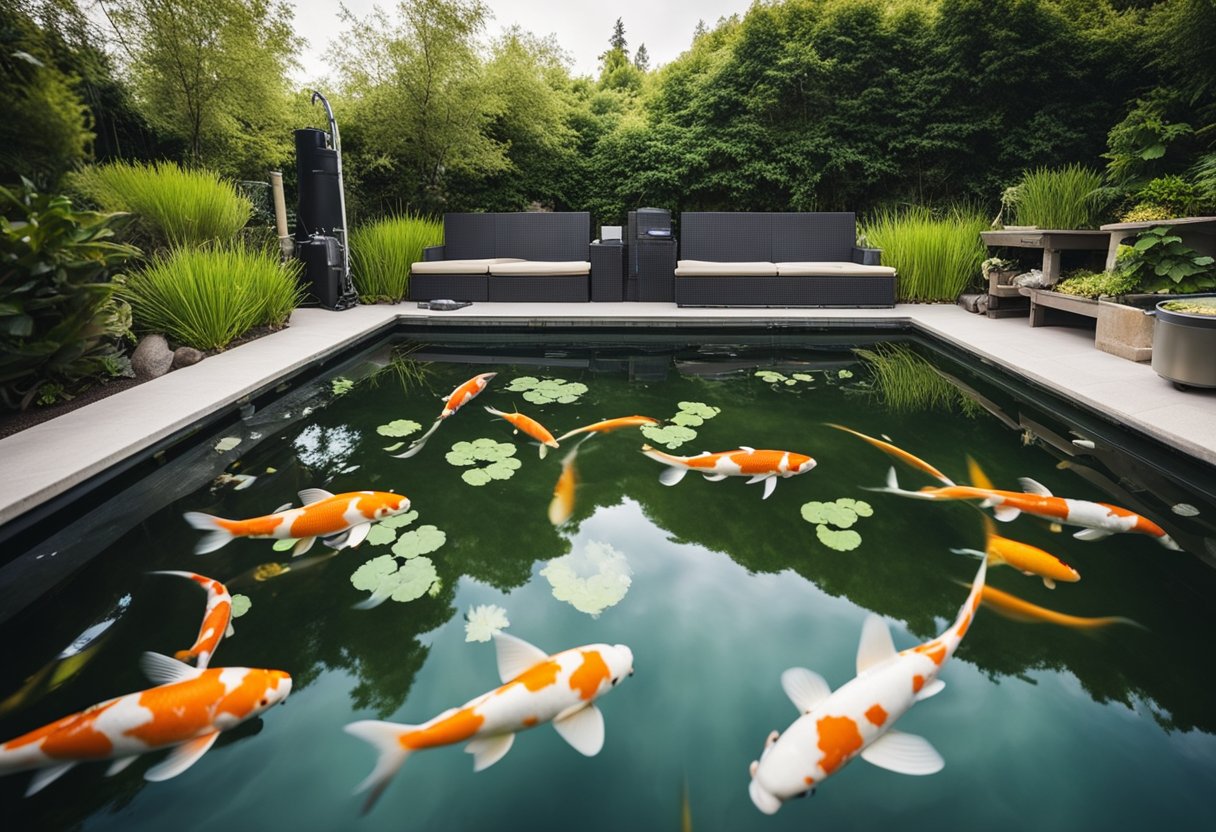
Welcome to our guide on selecting the best koi pond filters. When it comes to maintaining a healthy and thriving koi pond, proper filtration is of utmost importance. The right filtration system removes debris, promotes beneficial bacteria growth, and ensures optimal water conditions for your beloved koi fish.
Choosing the right koi pond filter can be a challenging task, considering the numerous options available in the market. However, by understanding the key factors to consider and exploring the different types of filters, you can make an informed decision that suits your specific needs.
In this article, we will discuss the importance of koi pond filtration and highlight the factors you should consider when selecting a filter. We will also delve into the different types of filters available, review some of the best options, and provide tips on installation, maintenance, and troubleshooting. By the end, you’ll have the knowledge you need to select the right koi pond filter and create a thriving habitat for your beautiful koi fish.
The Importance of Koi Pond Filtration
Proper filtration is essential for creating an optimal environment for koi fish in a pond. A reliable koi pond filtration system selection plays a vital role in maintaining the health and longevity of these beautiful creatures. In order to provide the best care, it is important to understand the importance of effective mechanical, biological, and chemical filtration.
Mechanical Filtration: Removing Debris
One of the primary functions of a koi pond filter is to remove debris from the water. Mechanical filtration is responsible for trapping suspended particles like leaves, algae, uneaten fish food, and other organic matter. Without efficient mechanical filtration, these particles can accumulate and degrade the water quality, negatively impacting the health of the koi fish.
Biological Filtration: Promoting Beneficial Bacteria
Biological filtration plays a crucial role in maintaining a balanced ecosystem in the koi pond. It provides a habitat for beneficial bacteria that break down harmful substances like ammonia and nitrites, which are excreted by the fish. These bacteria convert these toxins into less harmful nitrates, ensuring a healthy and stable environment for the koi fish.
Chemical Filtration: Maintaining Optimal Water Conditions
In addition to mechanical and biological filtration, chemical filtration helps maintain optimal water conditions in the koi pond. This type of filtration uses activated carbon or other chemical media to remove impurities, odors, and harmful substances such as chlorine and heavy metals. By eliminating these contaminants, chemical filtration safeguards the overall health and well-being of the koi fish.
“A well-maintained koi pond filtration system is vital for creating a clean and healthy environment for your koi fish.”
By combining mechanical, biological, and chemical filtration, a well-designed koi pond filter ensures that the water remains clear, free from harmful substances, and rich in beneficial bacteria. This advanced filtration system plays a crucial role in optimizing the health and vitality of the koi fish, providing them with the ideal conditions to thrive and flourish.
Key Features of an Effective Koi Pond Filtration System
| Feature | Benefits |
|---|---|
| High Flow Rate | Efficiently removes debris and maximizes water circulation. |
| Biofilter Media | Supports the growth of beneficial bacteria for biological filtration. |
| Multiple Filtration Stages | Addresses various aspects of filtration for optimal water quality. |
| Easy Maintenance | Allows for convenient cleaning and replacement of filter media. |
| Durable Construction | Ensures longevity and reliability of the filtration system. |
Factors to Consider When Choosing a Koi Pond Filter
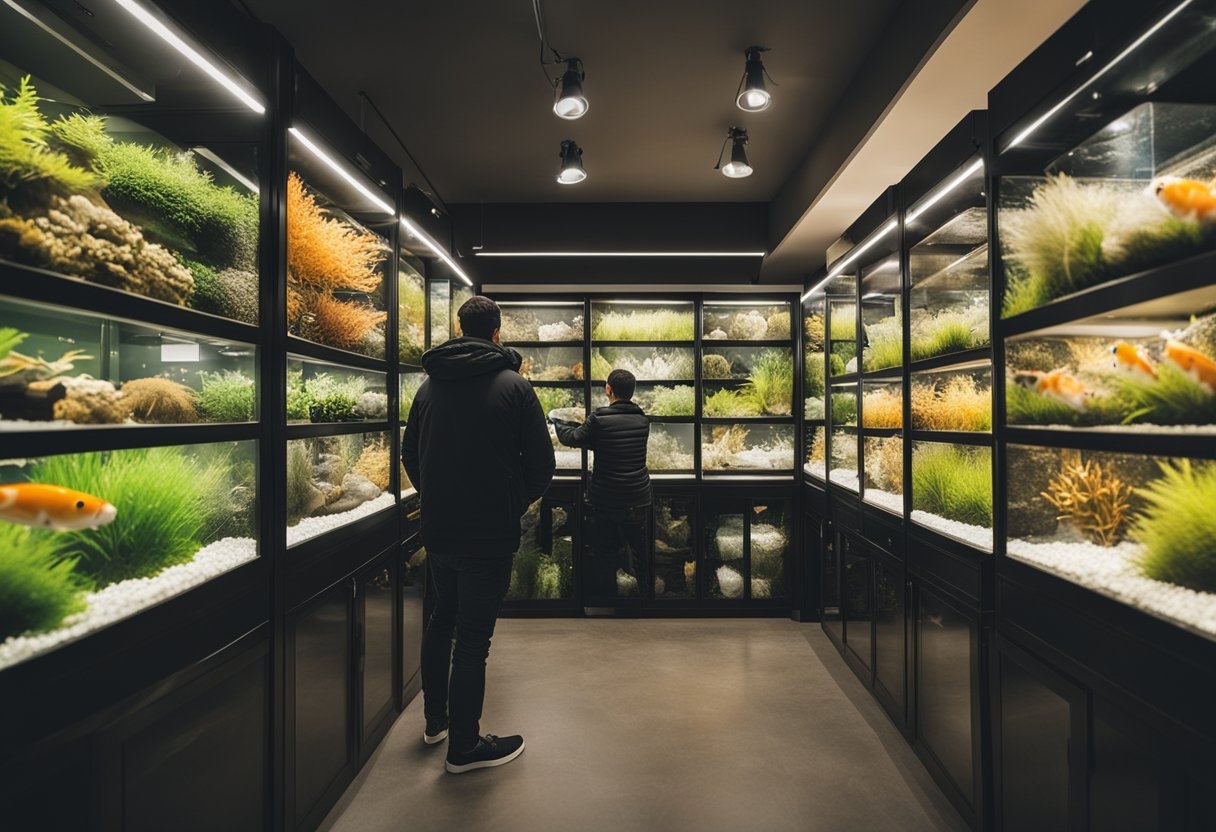
When selecting a koi pond filter, there are several important factors to consider. These factors will help ensure that you choose the right filter for your specific needs and the well-being of your koi fish.
Pond Size
The size of your pond is a crucial factor in determining the type and capacity of the filter you need. A larger pond will require a filter with higher filtration capacity to effectively handle the volume of water. Conversely, a smaller pond may require a smaller filter.
Filtration Capacity
The filtration capacity of a koi pond filter is measured in gallons per hour (GPH). It represents the amount of water the filter can effectively process in a given time. It is important to choose a filter with adequate filtration capacity to ensure proper water circulation and effective removal of debris, pollutants, and harmful substances.
Maintenance Requirements
Consider the maintenance requirements of the koi pond filter before making your decision. Some filters require regular cleaning or replacement of filter media, while others have self-cleaning mechanisms or require less frequent maintenance. Choose a filter that aligns with your maintenance preferences and capabilities.
Compatibility with Other Filtration Components
It is essential to consider the compatibility of the koi pond filter with other filtration components in your pond. Ensure that the filter integrates well with your existing system or the components you plan to add. This compatibility will optimize filtration efficiency and prevent any potential issues.
By taking these factors into account, you can make an informed decision when choosing a koi pond filter. Matching the filter to your pond size, considering filtration capacity, assessing maintenance requirements, and ensuring compatibility with other components will help create a healthy and thriving environment for your koi fish.
Types of Koi Pond Filters
When it comes to selecting the right koi pond filter, it’s important to understand the different types available and their unique features. Here, we will explore three common types of koi pond filters: mechanical filters, biological filters, and UV clarifiers.
Mechanical Filters
A mechanical filter is designed to remove solid debris from the water, such as leaves, fish waste, and uneaten food. These filters typically consist of a system of screens or foam pads that trap large particles.
Pros of mechanical filters:
- Efficient at removing larger debris
- Helps maintain clear water
- Easy to clean and maintain
Cons of mechanical filters:
- May require frequent cleaning, especially in heavily populated ponds
- Does not address biological or chemical filtration
Biological Filters
Biological filters play a crucial role in maintaining water quality and promoting the growth of beneficial bacteria. These filters use a medium, such as bio-balls or biofilter mats, to provide a large surface area for beneficial bacteria to colonize. The bacteria help break down harmful substances, such as ammonia and nitrite, into less harmful compounds.
Pros of biological filters:
- Efficient at converting harmful substances into less toxic compounds
- Supports the growth of beneficial bacteria
- Helps stabilize water quality
Cons of biological filters:
- May require periodic maintenance and cleaning
- Less effective at removing larger debris
UV Clarifiers
UV clarifiers use ultraviolet light to kill algae and bacteria in the water, reducing green water and controlling the spread of pathogens. The water passes through a chamber with a UV bulb that exposes it to UV light, effectively sterilizing it.
Pros of UV clarifiers:
- Effectively controls algae blooms and waterborne pathogens
- Improves water clarity
- Low maintenance
Cons of UV clarifiers:
- Does not remove physical debris from the water
- Requires proper sizing to ensure effectiveness
- May need replacement bulbs periodically
When choosing a koi pond filter, consider the specific needs of your pond and the type of filtration required. Mechanical filters, biological filters, and UV clarifiers can be used individually or in combination to achieve optimal water quality. By understanding the pros and cons of each type, you can make an informed decision that suits your pond size and budget.

